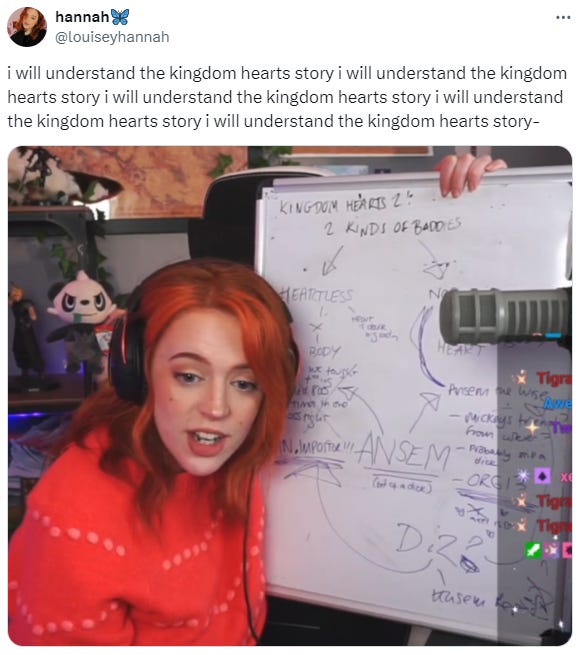My Brooklyn book club is reading Pedro Páramo, which is very Brooklyn of us. We’re deeply confused.
Pedro Páramo is a real Dark Souls of books–ass book, ostensibly about a man who travels to his estranged father’s hometown after his mother’s death, but maybe everyone there is a ghost, and someone is telling him about his shitty dad’s life but it’s not clear who and maybe they’re a ghost. It’s difficult in a way where the difficulty is the point, and god willing you might get what else is the point if you study it enough.
I’ve talked about it with two other book club members ahead of actual book club while I was about 20–30 pages in, and landed on 1) this is a book that I’m going to have to reread to get a single “complete” reading in, and 2) it feels like reading a David Lynch movie, in that sometimes you’re like ohhh I get it because I don’t get it, but then sometimes you just don’t get it.
I semi-foolishly decided to venture into the naive and hopeful world of YouTube explainer videos to see if maybe someone had written something useful about this book. There was not.
It’s nice to know that it’s not just video games or Marvel movies that are subject to the YouTube content mill grift of people chasing the theoretical money to be made in explaining media, I suppose.
If it weren’t for the book club, I’m not sure my first read of Pedro Páramo gave me quite enough of interest to feel like there was a story here worth the time and energy of puzzling out, even though I’ve read that apparently part of it is a story about a landlord getting his comeuppance, which would be awesome if I realized I was reading that. It definitely gets harder to follow as it goes on, unusually. I might need a Pepe Silvia–style board trying to unpack this one on my second read, like that time a streamer I like played Kingdom Hearts.
Maybe what I should do with ReadOnly is slowly turn it into that for Pedro Páramo.
My girlfriend is a little embarrassed every time I bring up her current obsession with reading memoirs about divorce, but I’ve been reading You Could Make This Place Beautiful because of it. It’s a memoir, but another puzzly little book, albeit a more straightforward one, partly because there’s more familiarity with the thought processes of turning over an ended relationship in their head than with whatever is going on in Pedro Páramo.
You Could Make This Place Beautiful is a memoir by a poet that lightly breaks away from prose throughout in a way that I’m enjoying, plan to write about more later in a different ReadOnly post, makes me very very sad, etc. It’s interesting that this is “easier” to read despite the breaks from the narrative to do the endless unpacking thought spirals one does when mourning a person who did them dirty. Probably because, even as it’s told across very very short sections that flit between ruminations on the form of the novel, what this story would look like if it were a play, poetry-esque passages, and sometimes even the series of events that form the narrative, there’s still a linear narrative in here. The puzzle is one the reader watches the author attempt to solve, rather than one the author has presented for the reader to make sense of. It’s ironic that Pedro Páramo is probably more “solvable” than You Could Make This Place Beautiful, since the clues could probably all be worked into some kind of coherent enough narrative with enough effort, even though even the translator’s note in the newest edition admits he has no idea what this book is ultimately about. But as anyone stuck puzzling over a breakup can tell you, that’s still more solvable than what went wrong.
Which I guess is why I’m going to try to Kingdom Hearts Pedro Páramo in an upcoming ReadOnly. Speaking of puzzles, figure out how to make this place more like what past projects, namely Bad Books Good Times, offered people. Been mulling over lately the impermance of things. Eras. Projects. Letting things go so that new things can use like-energy in its place. I could make this place… something.
I could also let this place be nothing. The internet sucks, man.







